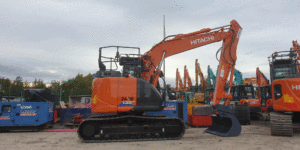
In an era dominated by technology and digital disruption, it’s essential not to overlook the enduring power and resilience of traditional business models. The United Kingdom, renowned for its rich history and diverse economy, is home to numerous traditional business models that have stood the test of time. In this post, we’ll explore some of these models and shed light on their key characteristics and significance in the UK’s business landscape.
Retail and Brick-and-Mortar Stores:
Traditional retail stores remain a vital part of the UK’s business landscape. From high-street fashion outlets to local grocery stores, these brick-and-mortar establishments offer customers the opportunity to browse physical products, receive personalised assistance, and enjoy a tangible shopping experience. Despite facing challenges from e-commerce, many successful retailers in the UK have adapted to the changing landscape by embracing omnichannel strategies, blending in-store and online experiences.
Hospitality and Tourism:
The UK’s rich cultural heritage and vibrant tourism industry have given rise to traditional business models in hospitality and tourism. Hotels, bed and breakfast establishments, and restaurants continue to thrive by offering tourists and locals alike a chance to experience warm hospitality, exceptional service, and authentic local cuisine. These businesses often leverage their unique location, historical significance, or distinctive offerings to attract customers and create memorable experiences.
Professional Services:
Professional services encompass a wide range of traditional business models operating in the UK. This category includes law firms, accounting practices, consultancy services, and other specialised service providers. These businesses rely on the expertise of professionals to deliver high-quality and tailored solutions to clients. Trust, reputation, and long-standing relationships play a crucial role in establishing and maintaining success in this sector.
Manufacturing and Craftsmanship:
The UK has a long history of excellence in manufacturing and craftsmanship. Traditional businesses in this sector range from small-scale artisans to large-scale manufacturers producing goods such as textiles, ceramics, furniture, and more. Many of these businesses have maintained their success by combining traditional techniques with innovation, ensuring the highest quality products and catering to a niche market of consumers who value craftsmanship and heritage.
Agriculture and Farming:
The UK’s countryside is dotted with traditional farms and agricultural businesses, representing an essential part of the country’s heritage. These businesses supply a wide range of agricultural products, including livestock, crops, dairy, and organic produce. With an increased focus on sustainability and locally sourced goods, traditional farming models have found a renewed appreciation in the UK, connecting consumers to the land and fostering a sense of community.
Pubs and Breweries:
Pubs hold a special place in British culture, serving as social hubs where people gather to enjoy a pint, engage in lively conversations, and experience the unique ambiance. Traditional pubs, often family-owned, offer a wide selection of beers, ales, and spirits, along with classic pub food. Additionally, the UK is known for its thriving brewery scene, with many traditional breweries producing craft beers and cask ales that are cherished by beer enthusiasts.
Traditional Clothing and Tailoring:
The UK has a long-standing reputation for its traditional clothing and tailoring industry. Savile Row in London is synonymous with bespoke tailoring, where skilled craftsmen create custom-made suits and garments tailored to individual measurements and preferences. These businesses focus on delivering exceptional craftsmanship, attention to detail, and timeless elegance, catering to those seeking sartorial excellence.
Bookstores and Independent Publishers:
Despite the rise of e-books and online retailers, traditional bookstores and independent publishers remain an integral part of the UK’s literary landscape. These establishments provide a physical space for book lovers to browse through shelves, discover new authors, attend readings, and engage in cultural events. Independent publishers often specialise in niche genres, championing emerging voices and unique perspectives.
Traditional Crafts and Artisans:
The UK is home to a thriving community of traditional crafts and artisans, who specialise in skills such as woodworking, pottery, glassblowing, jewelry making, and more. These skilled artisans produce handcrafted, one-of-a-kind products that celebrate craftsmanship, attention to detail, and artistic expression. Many artisans have established workshops or storefronts, allowing customers to witness the creative process firsthand.
Family-Owned Farms and Fisheries:
Family-owned farms and fisheries continue to play a crucial role in the UK’s food production and supply chain. These businesses prioritise sustainable farming and fishing practices, ensuring the availability of fresh, locally sourced produce. From organic fruits and vegetables to responsibly caught seafood, these traditional businesses contribute to the country’s culinary heritage and support the growing demand for sustainable and ethical food options.
Traditional Music and Instrument Shops:
Traditional music and instrument shops offer a treasure trove for music enthusiasts, catering to a wide range of musical styles and instruments. These shops provide a physical space for musicians to explore and purchase instruments, seek expert advice, and participate in workshops or jam sessions. They contribute to the preservation and promotion of traditional music, fostering a sense of community among musicians and enthusiasts alike.
Traditional business models in the UK encompass a diverse array of industries, each contributing to the country’s cultural heritage, economic growth, and community cohesion. From pubs and tailoring to bookstores and traditional crafts, these businesses provide unique experiences, support local communities, and showcase the value of tradition, craftsmanship, and human connection.
As the business landscape evolves, it’s crucial to recognise and appreciate the enduring contributions of these traditional models in shaping the UK’s vibrant and dynamic economy.








tenetur et expedita asperiores beatae dicta placeat necessitatibus non eveniet. laboriosam veritatis beatae eos facilis odit beatae qui placeat aut debitis placeat mollitia earum aut vel eius totam. esse exercitationem sequi earum corrupti dolores non nostrum cum non nobis enim voluptatem eum enim.
commodi facere inventore laborum sequi fugiat. aliquid perspiciatis fugit id magni. velit dignissimos dolorum quis molestiae nulla dolor exercitationem blanditiis in qui vel eligendi distinctio. quam eos incidunt similique excepturi in perferendis exercitationem ullam placeat earum velit voluptatem. magni dolorem tenetur quia voluptas sed quis consequatur quas.
Very wonderful information can be found on site.Raise blog range